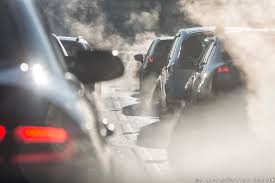
Cheap and simple devices that could help to effectively test the functioning of particle filters have been developed by engineers working to tackle carcinogenic pollution. The engineers believe that the new device would enable identification and of toxic vehicles which can then be taken off roads and there would be no need for implementing blanket bans to control pollution.
It has been a struggle for many municipalities throughout Europe to find out ways to adhere to the new clean air rules but not having to make investments in electric vehicle infrastructure worth billions or implementing a complete ban on diesel vehicles.
The need for finding out means to measure real-world emissions without installing costly equipment is also a reality for regulators.
The new device – which is inexpensive, simple, hand-held and battery-powered, would enable regulators to ascertain very quickly whether the particle filters of cars are functioning properly when the cars vehicles is at low idle speeds.
With a price tag about 8,000 euros ($9,060), these devices would be very affordable for the police and those garages that conduct emissions inspections.
It has been reported that the new device would be available in Europe this year itself for mandatory tests and that could aid enhance the reputation of diesel engines following the diesel scandal where auto companies used software to suppress pollution levels illegally during emission tests.
Diesel cars have been banned in some German cities with the aim of limiting the emission of the harmful nitrogen oxide (NOx).
Andreas Mayer, director of engineering group VERT's scientific committee, particulate matter suspended in the air also kills 5 million people a year globally. "There is a lot of toxic stuff emitted from cars, and the most toxic are particulates," Mayer said.
It can be possible to make vehicle exhaust less toxic compared to what the ambient air cars burn if all of the more than 100 million particle filters that are currently in use on European roads work properly.
"These diesel cars, if they are running through cities, are even cleaning the air because the filters are so efficient, so we must do everything in order to keep that quality during the life of the vehicle," Mayer said.
The problem comes when ceramic filters crack or get plugged with soot, sometimes prompting mechanics to remove or alter them in an improper fix to boost engine power.
Mayer said that the new testing devices will initially be rolled out in the Netherlands and Belgium. They are being manufactured by about a dozen European companies.
Until the incident involving Volkswagen which was caught using a software to suppress excessive pollution levels in those cars that is sold in the United States, there was little urgency among European regulators about the need for taking measures against the harmful impact of NO2 emissions and fine particulate matter that are emitted by diesel vehicles.
Accusing the company of perpetrating a "massive fraud" on U.S. investors, Volkswagen and its former chief executive Martin Winterkorn are being sued by the U.S. Securities and Exchange Commission over the diesel scandal.
(Source:www.economictimes.com)
It has been a struggle for many municipalities throughout Europe to find out ways to adhere to the new clean air rules but not having to make investments in electric vehicle infrastructure worth billions or implementing a complete ban on diesel vehicles.
The need for finding out means to measure real-world emissions without installing costly equipment is also a reality for regulators.
The new device – which is inexpensive, simple, hand-held and battery-powered, would enable regulators to ascertain very quickly whether the particle filters of cars are functioning properly when the cars vehicles is at low idle speeds.
With a price tag about 8,000 euros ($9,060), these devices would be very affordable for the police and those garages that conduct emissions inspections.
It has been reported that the new device would be available in Europe this year itself for mandatory tests and that could aid enhance the reputation of diesel engines following the diesel scandal where auto companies used software to suppress pollution levels illegally during emission tests.
Diesel cars have been banned in some German cities with the aim of limiting the emission of the harmful nitrogen oxide (NOx).
Andreas Mayer, director of engineering group VERT's scientific committee, particulate matter suspended in the air also kills 5 million people a year globally. "There is a lot of toxic stuff emitted from cars, and the most toxic are particulates," Mayer said.
It can be possible to make vehicle exhaust less toxic compared to what the ambient air cars burn if all of the more than 100 million particle filters that are currently in use on European roads work properly.
"These diesel cars, if they are running through cities, are even cleaning the air because the filters are so efficient, so we must do everything in order to keep that quality during the life of the vehicle," Mayer said.
The problem comes when ceramic filters crack or get plugged with soot, sometimes prompting mechanics to remove or alter them in an improper fix to boost engine power.
Mayer said that the new testing devices will initially be rolled out in the Netherlands and Belgium. They are being manufactured by about a dozen European companies.
Until the incident involving Volkswagen which was caught using a software to suppress excessive pollution levels in those cars that is sold in the United States, there was little urgency among European regulators about the need for taking measures against the harmful impact of NO2 emissions and fine particulate matter that are emitted by diesel vehicles.
Accusing the company of perpetrating a "massive fraud" on U.S. investors, Volkswagen and its former chief executive Martin Winterkorn are being sued by the U.S. Securities and Exchange Commission over the diesel scandal.
(Source:www.economictimes.com)














